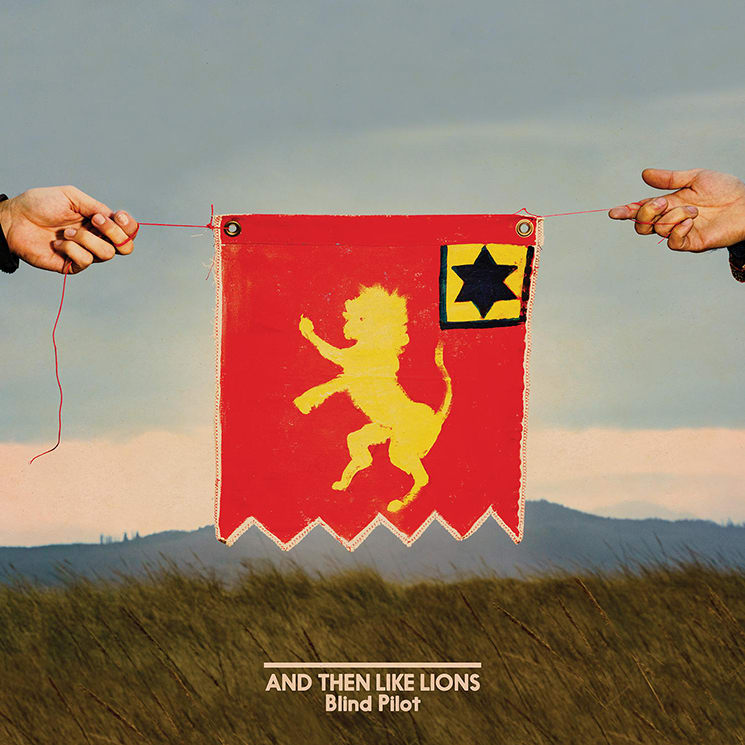Blind Pilot are a Portland, Oregon indie-folk-pop band specializing in sweet melancholy and wistful introspection. They take their time making their music, on both macro and micro scales: they've released three albums in eight years, but even track-by-track, their compositions tend to unfurl slowly, delicately. They hail from the United States' Pacific Northwest, which gave us Death Cab for Cutie, Band of Horses, Horse Feathers, Pedro the Lion, Fleet Foxes, Damien Jurado and more. If you're excited by any of that, Blind Pilot are a band that will give you what you want; otherwise, you might find And Then Like Lions a little redundant or safe.
From the first breathy confessions and warm keyboard sounds that open "Umpqua Rushing," the band establish that this will be a pleasant and pretty listening experience. Israel Nebeker's voice is clean and smooth, and he often backs away from the last consonant of each line delicately; his soul-searching songs are never too pained or aching. His emotional ups and downs are delivered with sincerity and intimacy, but still with enough restraint that they never quite become moving.
The tricky part of an album like this is that while there aren't necessarily "flaws" — the clean vocal harmonies, the velvety horn textures, the sensitive arrangements, the cool lead electric guitar part in the chorus of "Moon at Dawn" are all nicely done — too much pleasantry might beget boredom or even suspicion from a more cynical listener. If you want to just chill at home in the afternoon, give this beauty a spin. Those wanting a reinvented wheel, look elsewhere.
(ATO Records)From the first breathy confessions and warm keyboard sounds that open "Umpqua Rushing," the band establish that this will be a pleasant and pretty listening experience. Israel Nebeker's voice is clean and smooth, and he often backs away from the last consonant of each line delicately; his soul-searching songs are never too pained or aching. His emotional ups and downs are delivered with sincerity and intimacy, but still with enough restraint that they never quite become moving.
The tricky part of an album like this is that while there aren't necessarily "flaws" — the clean vocal harmonies, the velvety horn textures, the sensitive arrangements, the cool lead electric guitar part in the chorus of "Moon at Dawn" are all nicely done — too much pleasantry might beget boredom or even suspicion from a more cynical listener. If you want to just chill at home in the afternoon, give this beauty a spin. Those wanting a reinvented wheel, look elsewhere.
